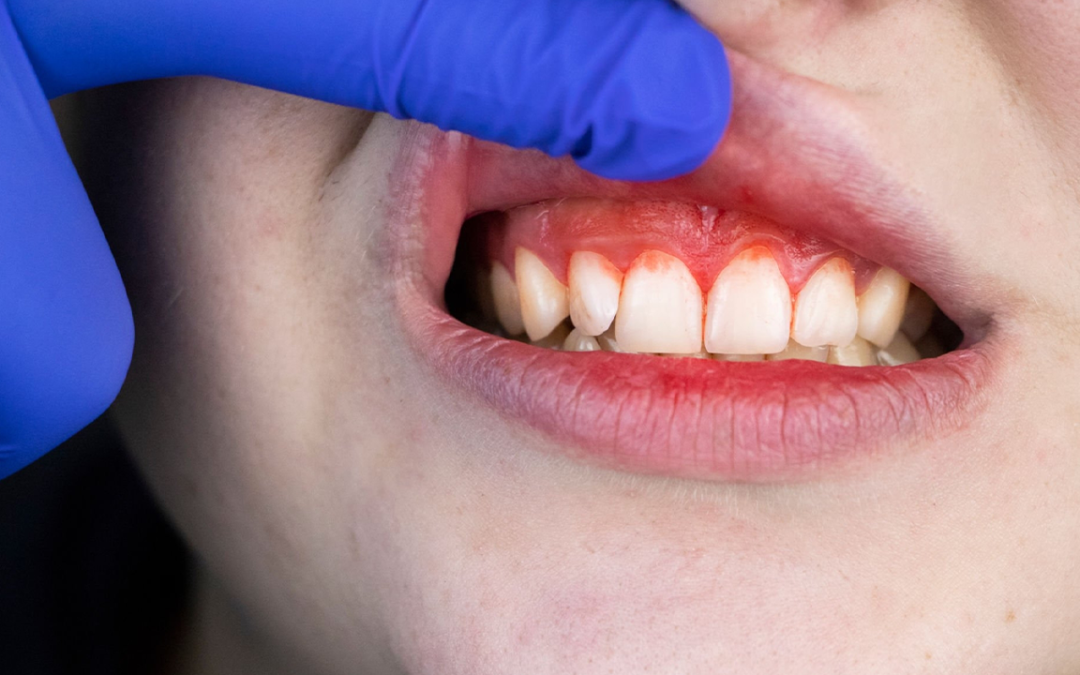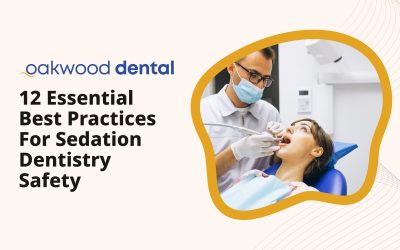Gum disease, also known as periodontal disease, is a common oral health issue that affects nearly half of all adults in the United States. It can have far-reaching effects on your overall health. Regular dental care is crucial not just for your smile, but for your whole body. Here’s what you need to know about the link between gum disease and your health.
Key Takeaways
- Gum disease affects nearly 50% of US adults over 30
- It starts as gingivitis and can progress to periodontitis
- Poor oral hygiene and plaque buildup are primary causes
- Risk factors include smoking, diabetes, and genetics
- Early stages are reversible with proper care
- Advanced gum disease can lead to tooth loss and systemic health issues
- Regular dental checkups and good oral hygiene are essential for prevention
- Gum disease has been linked to heart disease, diabetes, and other health conditions
- Pregnant women with gum disease may face higher risks of complications
- Treatment options range from deep cleaning to surgery in severe cases
Understanding Gum Disease
Gum disease starts when plaque, a sticky film of bacteria, builds up on your teeth. If not removed through brushing and flossing, it can lead to inflammation of the gums. This early stage is called gingivitis. If left untreated, it can progress to periodontitis, a more serious form of gum disease that can damage the soft tissue and bone supporting your teeth.
Some common signs of gum disease include:
- Red, swollen gums
- Bleeding gums when brushing or flossing
- Receding gums
- Loose or sensitive teeth
- Persistent bad breath
If you notice any of these symptoms, it’s important to see your dentist as soon as possible. Early detection and treatment can help prevent more serious problems down the road.
The Mouth-Body Connection
Your mouth is like a gateway to the rest of your body. When gum disease develops, it doesn’t just stay in your mouth. The bacteria and inflammation can spread to other parts of your body, potentially leading to or worsening other health problems.
Good oral hygiene isn’t just about keeping your teeth clean – it’s about protecting your overall health. Research has shown that gum disease may be linked to several serious health conditions, including:
Heart Disease and Stroke
Studies have found that people with gum disease are at higher risk for heart disease and stroke. The bacteria from gum infections can enter your bloodstream and travel to your heart, potentially causing inflammation in the blood vessels. This can increase your risk of heart attack and stroke. The connection is so significant that some cardiologists now recommend a dental evaluation as part of heart disease prevention and management.
Diabetes
There’s a two-way relationship between gum disease and diabetes. People with diabetes are more likely to develop gum disease, and gum disease can make it harder to control blood sugar levels. Keeping your gums healthy can help manage diabetes better. This is because inflammation in the gums can affect insulin sensitivity and glucose metabolism. Managing both conditions simultaneously is crucial for overall health.
Respiratory Issues
The bacteria from gum disease can be inhaled into your lungs, potentially causing respiratory infections or worsening existing lung conditions. This is especially concerning for people with chronic respiratory diseases. Studies have shown that improving oral hygiene can reduce the incidence of respiratory infections, particularly in elderly or immunocompromised individuals.
Pregnancy Complications
Pregnant women with gum disease may be at higher risk for premature birth and low birth weight babies. That’s why it’s especially important for expectant mothers to maintain good oral health and get regular dental cleanings. The hormonal changes during pregnancy can increase the risk of gum problems, making preventive care even more crucial during this time.
Brain Health
Some studies suggest a possible link between gum disease and cognitive decline, including conditions like Alzheimer’s disease. While more research is needed, it’s another reason to take your oral health seriously. The inflammation associated with gum disease may contribute to inflammation in the brain, potentially affecting cognitive function over time.
Preventing and Treating Gum Disease
The good news is that gum disease is largely preventable and treatable. Here are some steps you can take to protect your gums and your overall health:
Brush Twice Daily
Use fluoride toothpaste
Floss Daily
Clean between teeth
Use Mouthwash
Antimicrobial rinse
Regular Check-ups
Visit dentist often
Regular dental check-ups are crucial for catching gum disease early. Your dentist can spot signs of trouble before you even notice symptoms. They can also perform professional cleanings to remove plaque and tartar buildup that you can’t get rid of at home. These check-ups are your first line of defense against gum disease and its potential complications.
If you do develop gum disease, treatment options include:
- Deep cleaning procedures like scaling and root planing, which remove plaque and tartar from below the gum line
- Antibiotic treatments, either topical or oral, to combat bacterial infection
- Advanced treatments for severe cases, such as gum surgery or laser therapy
- Ongoing maintenance and more frequent cleanings to prevent recurrence
In some cases, sedation dentistry may be used to help anxious patients get the treatment they need. This can be particularly helpful for those with dental phobias or sensitive gums.
Taking Charge of Your Oral and Overall Health
Understanding the link between gum disease and overall health is an important step in taking care of yourself. By maintaining good oral hygiene and getting regular dental check-ups, you’re not just protecting your smile – you’re investing in your overall health and well-being. This holistic approach to health care recognizes that oral health is integral to general health and quality of life.
Remember, your mouth is a window to your body’s health. If you notice any signs of gum disease or it’s been a while since your last dental visit, don’t wait. Schedule an appointment with your dentist today. Your gums – and your whole body – will thank you!
Taking care of your oral health is a lifelong commitment, but it doesn’t have to be complicated. With regular brushing, flossing, and dental visits, you can keep your gums healthy and reduce your risk of related health problems. Your smile is worth it! Moreover, by prioritizing your oral health, you’re taking a proactive step towards preventing a range of systemic health issues and improving your overall well-being.

 718-979-2121
718-979-2121










